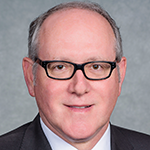The differences between axial spondyloarthropathy (axSpA) and axial involvement in psoriatic arthritis (axPsA) have clinical and therapeutic implications. Three experts discussed the distinctions during ACR Convergence 2021.


Samantha C. Shapiro, MD, is a clinician educator who practices telerheumatology and writes for both medical and lay audiences. She earned her medical degree from Baylor College of Medicine, Houston, and was inducted into Alpha Omega Alpha Honor Medical Society. In 2018, she completed her internal medicine residency and rheumatology fellowship training at Johns Hopkins University, Baltimore. Fresh out of training, she founded the Division of Rheumatology at Dell Medical School at The University of Texas at Austin, where she remains an affiliate faculty member. In September 2021, she left her full-time academic position to pursue her main passions: clinical education, patient education, advocacy and international travel. She works with various telehealth services to improve access to rheumatologic care. She educates patients and physicians as a medical writer and enjoys writing for both lay and medical audiences. She is an active member of the ACR, volunteering her time to the ACR’s Insurance Subcommittee.

The differences between axial spondyloarthropathy (axSpA) and axial involvement in psoriatic arthritis (axPsA) have clinical and therapeutic implications. Three experts discussed the distinctions during ACR Convergence 2021.

The American Board of Internal Medicine’s recently launched Longitudinal Knowledge Assessment for rheumatology maintenance of certification emphasizes convenience and ongoing learning.

Patients shouldn’t need to exercise patience when it comes to getting needed rheumatologic care. E-consults are an evolving telehealth modality with the potential to improve access to rheumatologic care in a cost-effective and efficient manner.

Experts shined a spotlight on select abstracts of the latest rheumatology research, addressing such topics as racial disparities in the management of children with SLE, vitamin D or fish oil supplementation to prevent autoimmune disease & more.

ACR CONVERGENCE 2021—Hematologic abnormalities are common in systemic lupus erythematosus (SLE), whether due to SLE itself or something else. As rheumatology professionals, we are routinely challenged by the management of cytopenias in our SLE patients. At the ACR’s annual meeting in 2021, two hematologists shared expert advice regarding common hematologic manifestations of SLE. Michael B….

Experts compare using ultrasound and dual-energy computed tomography (DECT) scan when diagnosing likely gout patients, and discuss the latest insights into the intersection between gout and cardiovascular disease.

At ACR Convergence 2021, two doctors provided an overview of inflammatory eye disease and the overlap with systemic rheumatic illnesses.

ACR Convergence 2021—On Nov. 5, Karen H. Costenbader, MD, MPH, professor of medicine, Harvard Medical School, and director of the lupus program, Brigham and Women’s Hospital, Boston, gave a whirlwind review of the most important clinical rheumatology publications of the past year. Testing New Medications for Rheumatic Disease ADVOCATE Trial of Avacopan Dr. Costenbader first…

Michael B. Brenner, MD, addresses exciting advances in basic science in rheumatology, including insights into inflammation in osteoarthritis, the adult-onset autoinflammatory syndrome VEXAS and more.

We are fortunate to have clinical practice guidelines for the management of psoriasis and psoriatic arthritis (PsA) from multiple organizations to help navigate today’s rapidly evolving therapeutic landscape. We are further fortunate to have multiple specialists to manage these conditions: rheumatologists and dermatologists. However, multiple guidelines, multiple drugs and multiple specialists can create a paradox…